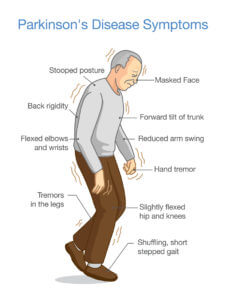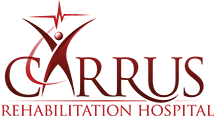
Parkinson’s disease is an age-related degenerative condition that affects parts of the brain responsible for movement and coordination. It develops due to a loss of dopamine-producing cells in the brain, and many symptoms can be experienced by patients with this condition. Individuals diagnosed with Parkinson’s need to manage it well in order for them to continue to live independently and participate in their desired activities.
If you are concerned about Parkinson’s disease and suspect that you may be experiencing its symptoms, we advise that you seek medical attention. There are a number of tests used to diagnose this condition.
The symptoms of Parkinson’s disease can vary from person to person, and it may vary depending on the stage of the disease. In this article, we will talk about some of the most common symptoms of Parkinson’s disease.
Early Symptoms of Parkinson’s Disease
Tremors – One of the most noticeable symptoms of the disease is tremors. Tremors are the uncontrollable shaking of the hands, arms, legs, or face, especially at rest. Tremors may start on one side of the body and spread to the other side over time. Tremors can be mild or severe and may worsen with stress or excitement.
Stiffness – Parkinson’s disease can also cause muscle rigidity and stiffness, making it difficult to move around. Stiffness can affect any part of the body and may lead to pain and discomfort. People with Parkinson’s disease may also experience muscle cramps or spasms.
Bradykinesia – Another common symptom is bradykinesia, which is the slowness of movement. This can include difficulty initiating movement and performing simple tasks. People with Parkinson’s disease may also have trouble with fine motor tasks, such as buttoning a shirt or using utensils.
Postural Instability – Parkinson’s disease can also lead to postural instability, which is the difficulty maintaining balance and coordination. This can lead to falls, which can be especially dangerous for older adults.
Changes in Speech – In terms of speech, people with the disease may experience a soft or slurred speech pattern, also known as hypophonia or dysarthria. This is due to decreased muscle tone and control in the muscles involved in speech production, which can make it difficult to enunciate words clearly.
Changes in Handwriting – Parkinson’s disease can also affect handwriting. This symptom is called micrographia, and it refers to the tendency to write smaller and more cramped letters than usual. Micrographia occurs because the muscles involved in handwriting become less coordinated and less able to produce smooth and flowing movements.
Late Symptoms of Parkinson’s Disease
Freezing – Freezing is a symptom where a person with Parkinson’s disease has difficulty starting or continuing movements, such as walking or turning around, which makes navigating around obstacles difficult.
Cognitive Changes – Parkinson’s disease can affect cognitive function, particularly as the disease progresses. Cognitive changes can include difficulty with memory, attention, problem-solving, and decision-making. In some cases, these changes can progress to dementia.
Depression and Anxiety – Mood disorders such as depression and anxiety are common in people with Parkinson’s disease, as this affects the dopamine-releasing cells. In addition, the experience of living with the disease can also be isolating and trigger feelings of sadness and hopelessness.
Sleep Disturbances – Parkinson’s disease can also cause sleep disturbances, such as insomnia, restless leg syndrome, and sleep apnea, due to chemical changes in the brain that affect the sleep-wake cycle.
Parkinson’s Disease Treatment in Sherman, TX
At Carrus Health Rehabilitation Hospital, our qualified medical professionals provide around-the-clock, in-house rehabilitation care and support for patients with Parkinson’s disease. Our treatment programs help improve movement, reduce symptoms, and enhance the daily function. We also offer a range of outpatient services to better manage this disease.
Our team of physicians, nurses, and skilled medical professionals believe in hope and positivity when it comes to dealing with a Parkinson’s disease diagnosis. To find out more about our rehabilitation services or to schedule an appointment with us, call our office today at (903) 870-2600. We look forward to your call.

